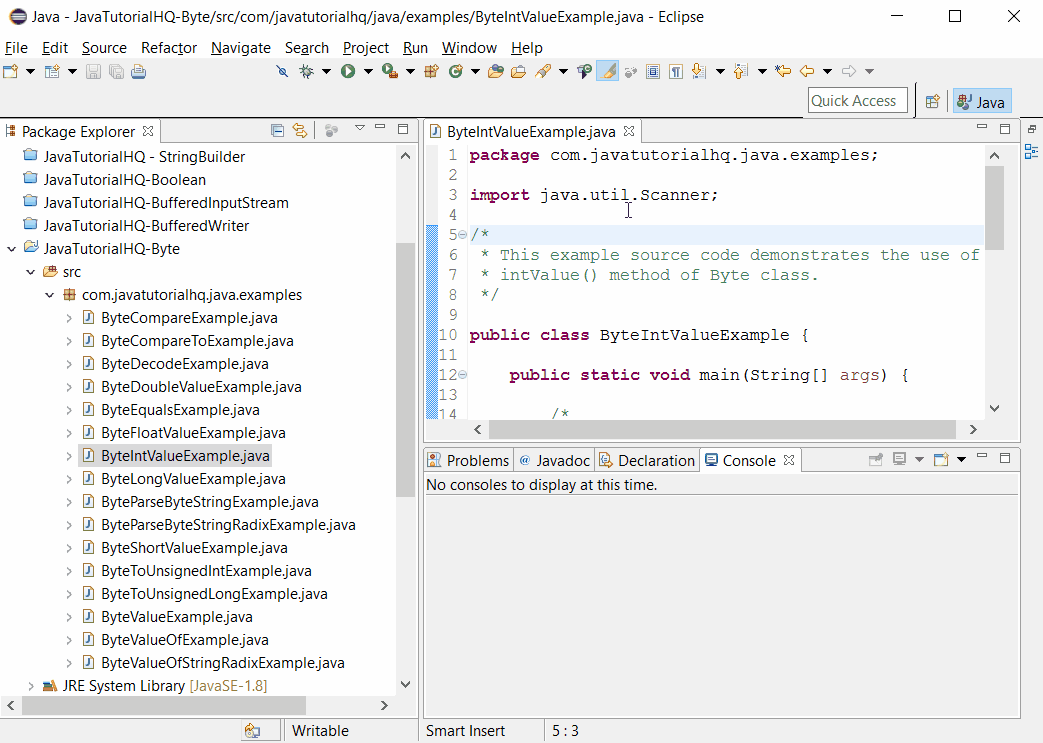java.lang.Byte intValue()
Description
Important Notes:
- The method
intValue()is specified by intValue in class Number.
Method Syntax
public int intValue()
Method Argument
| Data Type | Parameter | Description |
|---|---|---|
| N/A | N/A | N/A |
Method Returns
The intValue() method of Byte class returns the numeric value represented by this object after conversion to type int.
Compatibility
Requires Java 1.1 and up
Java Byte intValue() Example
Below is a simple java example on the usage of intValue() method of Byte class.
package com.javatutorialhq.java.examples;
import java.util.Scanner;
/*
* This example source code demonstrates the use of
* intValue() method of Byte class.
*/
public class ByteIntValueExample {
public static void main(String[] args) {
/*
* Editor's Note
* Be extra careful in using this method
* as it uses widening concept
*/
// ask for user input
System.out.print("Enter a number:");
// read the user input
Scanner s = new Scanner(System.in);
String value = s.nextLine();
s.close();
Byte byteValue = new Byte(value);
// convert byteValue into int
int result = byteValue.intValue();
System.out.println("int value is "+result);
}
}
Basically on the above example, we have asked the user to enter a number on the console. Internally the input value is assign to a Byte object. We then use the intValue() method to convert it into type int. It doesn’t do much however it shows the basic behaviour of this method.
Sample Output
Below is the sample output when you run the above example.

